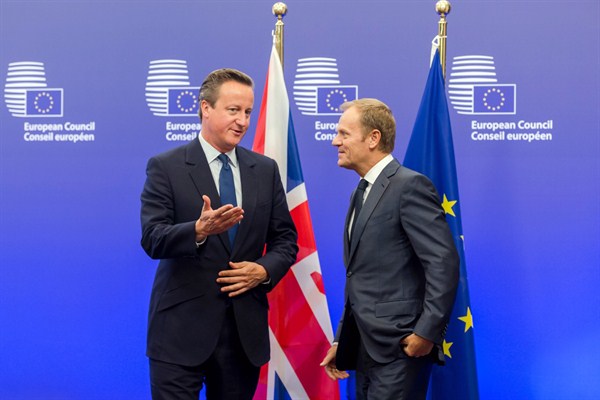British Prime Minister David Cameron has been on an offensive since the Paris attacks in November to counter any perception that the United Kingdom is shrinking in its international ambitions. Central to his position is an unambiguous commitment to maintain a U.K. defense budget of 2 percent of GDP and direct new spending to counter the threat of the self-proclaimed Islamic State. However, uncertainty over the U.K.’s relations with the European Union, with a British vote on whether or not to stay in the union expected this June, could derail his campaign.
Cameron committed an additional 12 billion pounds (about $17 billion) of defense spending, much of it for new military equipment, in the annual set piece foreign policy speech delivered at the Lord Mayor’s banquet in London in November. Some of that spending is focused on attacking the Islamic State in Syria and Iraq with airstrikes from fighter jets and drones. Cameron said the funding would double the number of drones in the British fleet and would boost the capabilities of its special forces. Cameron also announced a major reorientation of the U.K.’s $17 billion foreign aid budget, with half of the spending going to failed and fragile states that have the potential to become incubators for terrorism.
These additional resources to counter the Islamic State were part of a broader program of boosting the U.K.’s defense and security capabilities after a period of cuts following the financial crisis. Austerity measures to stabilize public finances have shrunk expenditures on foreign, security and defense policy: Defense spending fell from about $63 billion in 2010 and 2011 to $49.5 billion in 2014 and 2015. The 12 billion pound increase over the next decade represents a major reversal.

